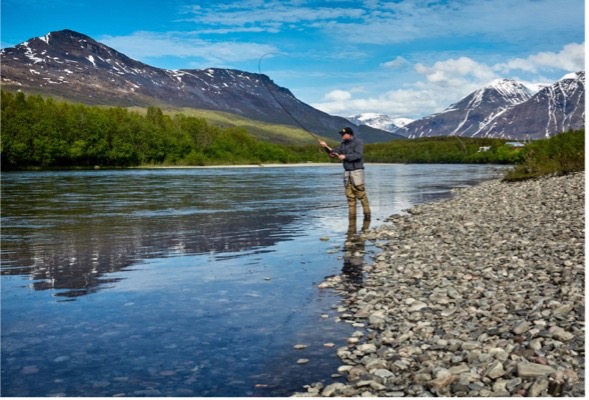Fishing tourism is a large and growing niche. Across Europe there are an estimated 25 million recreational anglers. They take longer trips than average and spend more. On a fishing holiday they stay about 9.9 nights and spend around 36% more than general tourists. The global fishing tourism market was valued at about 72.5 billion euro in 2023 and is projected to reach about 211.1 billion euro by 2033.
The infographic below, shows the market at a glance. It summarises the key segments, the main European source markets and the activities that are driving interest..png)
Who is the market
Anglers are varied. Seven clear segments stand out. Adventurous Anglers and Zen Anglers are the largest. Friendly Fishermen, Social Dabblers, Occasional Anglers, Consumptive Anglers and Traditionalists complete the picture. Each group has different motivations from the thrill of big fish and new places to time with family or passing on knowledge and caring for conservation.
Anglers are mostly male with an average age of about 42, but participation by women is rising. On average an angler fishes for about 17.9 days a year. Many also enjoy other outdoor activities which makes fishing a strong gateway to wider nature based trips.
Where they want to go
European anglers look for both saltwater and freshwater experiences in developing destinations. Popular saltwater choices include Mexico, Kenya, The Bahamas, Cuba, Costa Rica, Vietnam, Panama, Belize and India. Freshwater draws include Guyana, Thailand, Argentina, Brazil in the Amazon, Zambia and Zimbabwe on the Zambezi, Nicaragua on the San Juan and India in the Kerala backwaters.
Four destinations are most favourited due to species, conservation and product strength. These are Mexico, Guyana, Kenya and The Bahamas.
.jpg)
What they like to do
The offer spans both freshwater and saltwater as shown in the infographic below:
- Freshwater: coarse fishing, fly fishing, ice fishing, kayak fishing.
- Saltwater: deep sea fishing, saltwater fly fishing, surf fishing and spearfishing.
- Game fishing targets prized species in both environments with techniques such as popper and jig and trolling.
Anglers also look for distinctive experiences such as night fishing, jungle adventures with Indigenous guides and multi day river expeditions.
.png)
What buyers and travellers expect
To work with European tour operators and to sell to European travellers you must meet three legal basics: the EU Package Travel Directive, GDPR for data protection and suitable liability insurance with insolvency protection.
On the ground, expectations are consistent:
- Expert and locally knowledgeable guides with regular safety training
- Safe boats that meet recognised standards with life jackets and essential equipment
- Quality rods and tackle available to hire with clear lists of what is provided
- Help for guests to obtain the right licences
- Comfortable services such as lodging and meals and the option to add local nature or cultural experiences
- A clear and current website with easy enquiry or online booking
- Flexibility to tailor trips by species, season and ability level
Sustainability is now standard
Anglers care about fish stocks and healthy habitats. Sustainable practice is central to market entry. Key actions include catch and release with fish friendly gear, carbon conscious boating, removal of all waste, and guiding that teaches guests about local ecosystems and conservation. Certification can help demonstrate standards. Examples include Travelife, TourCert and Good Travel Seal for operators and Blue Flag or Friends of the Sea for marine practice.
Regulation is tightening in many destinations. Kenya requires release of billfish and promotes tagging to support research. Mexico enforces strict sport fishing licences and bag limits. In Guyana community led conservation has helped restore arapaima populations and made responsible fishing part of the visitor experience.

Routes to market
Specialist European tour operators and the fishing OTA FishingBooker are key. Adventure operators and destination management companies are also important partners. Many anglers book direct, so a professional website and active social channels with recent catch reports can lift conversions.
What this means for destinations and operators
- Focus on the segments that fit your waters and seasons.
- Publish a simple calendar that shows the best months for target species.
- Invest in guide training, boat safety and guest care.
- Make sustainability visible with clear practice and regular reporting.
- Work with DMCs and specialist operators in Germany, Italy, the UK, Sweden, the Netherlands and France.
Fishing tourism can deliver strong local value when it is managed well. The opportunity is clear. The market is large, the offer is diverse and demand for responsible nature-based travel continues to grow.
If you would like support to shape a fishing offer that meets European expectations and builds community benefit, or you want to review trends for growth and deepen your knowledge, explore our related work here or send us an email to nicole@acorntourism.co.uk
Related
Comments
Nobody has commented on this post yet, why not send us your thoughts and be the first?


.png)





